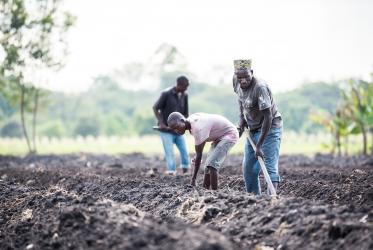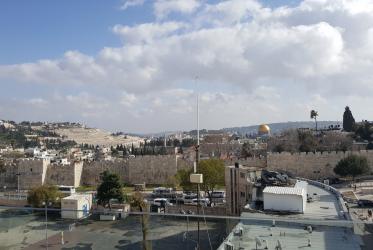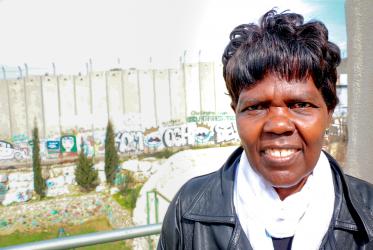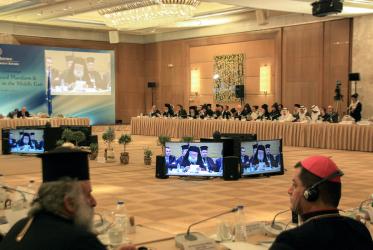Displaying 1 - 19 of 19
Trying to do good for the world
18 December 2017
Guided by faith, hope and endurance
02 October 2017
Beirut workshop fosters cooperation on diakonia
14 June 2016
Water is a gift, and a right for all, says WCC moderator
14 March 2016
International conference addresses challenges in the Middle East
22 October 2015
WCC Executive Committee speaks out on migrant crises
12 June 2015
Walking to Emmaus in the Holy Land, and Sweden
12 May 2015
Religious leaders urge a ban on fully autonomous weapons
02 April 2015
Consultation brings rights of religious minorities into focus
18 September 2013












